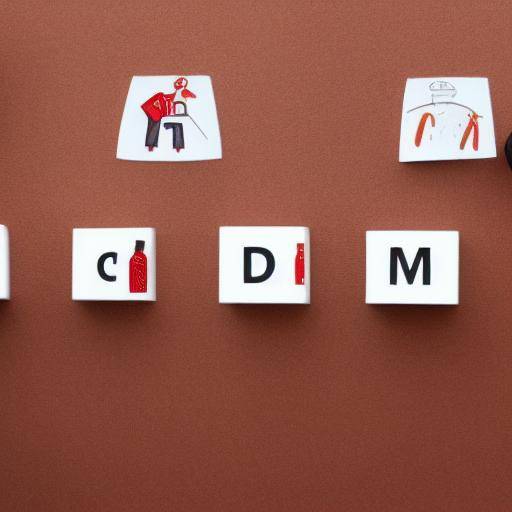
Self-discipline is crucial for personal development and the elimination of negative habits. In this article, we will explore in depth the importance of self-discipline, how it influences the elimination of negative habits, and provide practical advice to cultivate this skill.
Introduction
Imagine being able to remove those negative habits that hinder your personal growth. Self-discipline is the key to achieving that goal. In this article, you will discover how to develop self-discipline and use it as a powerful tool to eliminate negative habits. We will explore its importance, history, practical application, advice, and much more.
History and Background
Self-discipline has been a topic of interest throughout history. From the philosophical teachings of ancient Greece to modern personal development practices, it has evolved as a fundamental skill for success and well-being. For centuries, philosophers, writers and leaders have advocated for their importance, demonstrating their timeless relevance.
Personal discipline has been a prominent practice in various cultures of the world, manifested through different rituals, techniques, and practices. This multidimensional approach has allowed self-discipline to last over time and evolve with society.
Modern studies have revealed the importance of self-discipline in various areas, such as health, career, emotional well-being, and interpersonal relationships. Scientific research supports the idea that self-discipline is a key ability to achieve long-term goals and overcome obstacles.
Analysis in Deep
Self-discipline brings many benefits, from improving productivity to strengthening emotional resilience. However, facing negative challenges and habits can hinder their development. The ability to resist, maintain focus and persevere despite difficulties is essential to overcome counterproductive habits.
Developing self-discipline involves facing constant challenges, such as procrastination, excess indulgence, and lack of focus. It is therefore essential to understand the psychological and emotional mechanisms that underlie these behaviors to effectively overcome them.
Comprehensive review
The development of self-discipline requires a comprehensive approach that combines understanding of mental processes with effective strategies. Techniques such as visualization, structured planning and self-reflection can be powerful tools to strengthen self-discipline. Exploring these methodologies and adapting them to individual needs is essential to achieving the desired change.
A detailed analysis of best practices and approaches reveals that the environment, social support, and self-motivation play significant roles in the development of self-discipline. Integrating these elements into everyday life can generate a significant impact on the ability to eliminate negative habits and promote positive change.
Comparison and Contrast
By comparing self-discipline with negative habits, the importance of understanding the interaction between the two is revealed. While self-discipline involves the ability to resist temptations and keep focus on long-term goals, negative habits are entrenched patterns that hinder personal and professional development.
Exploring the similarities and differences between self-discipline and negative habits provides a deeper understanding of how the application of the former can suppress the influence of the latter. Identifying these contrast points is essential to promote self-discipline as an effective tool to eliminate negative habits.
Practical Tips and Accessible Tips
Now that we recognize the importance of self-discipline and its role in eliminating negative habits, it is essential to provide practical and actionable advice that readers can implement in their daily lives. Some effective strategies include defining clear goals, creating structured routines, developing positive habits, and cultivating self-reflection to identify unwanted patterns.
It is essential to remember that the development of self-discipline is a gradual process that requires consistency and patience. Implementing short- and long-term strategies can help strengthen this ability and overcome the negative habits rooted in daily life.
Industry Perspectives and Expert Reviews
Self-discipline has been the subject of extensive research and analysis by experts in various fields, including psychology, personal development, neuroscience and academic and labor performance. Their influence on the elimination of negative habits has been the subject of constant debate and study, generating a wide spectrum of perspectives and approaches.
Gathering expert opinions provides a holistic view of self-discipline and its relationship with the elimination of negative habits. Explore these perspectives provides valuable information and practical approaches that can guide readers on their own journey towards the development of self-discipline and the abandonment of negative habits.
Case Studies and Applications in Real Life
Analyzing real case studies that demonstrate the effective application of self-discipline to eliminate negative habits in various situations provides a practical understanding of their impact and potential. From personal overcoming stories to positive change testimonies, these cases reveal how self-discipline can transform lives and foster meaningful growth.
Future Trends and Predictions
Current trends in psychology, personal development and coaching reveal a growing interest in integrating self-discipline as a central tool to boost positive change. As awareness of the importance of self-discipline grows, this skill is expected to play a crucial role in promoting personal development and eliminating negative habits.
The integration of technology, neuroscience and emotional education in the development of self-discipline promises to open new borders in the understanding and implementation of effective strategies. This multidisciplinary approach offers a wide range of possibilities for the development of self-discipline and the elimination of negative habits in a constantly changing world.
Conclusion
The development of self-discipline is essential to eliminate negative habits and achieve personal growth. Throughout this article, we have explored the historical importance, in-depth analysis, comparisons, practical advice, and industry perspectives related to self-discipline and its role in eliminating negative habits. By understanding their influence and implementing effective strategies, readers can transform their lives and achieve a higher level of well-being and success.
Frequently asked questions
What is self-discipline and why is it important to eliminate negative habits?
Self-discipline is the ability to control impulses, resist temptation, keep focus on long-term goals and persevere despite difficulties. It is crucial to eliminate negative habits, as it strengthens the ability to resist unwanted patterns and promote positive change.
What are some effective strategies to develop self-discipline?
The definition of clear goals, the creation of structured routines, the development of positive habits, and the practice of self-reflection are effective strategies to develop self-discipline.
How can I maintain long-term self-discipline?
Maintaining long-term self-discipline requires consistency, patience, and implementation of short- and long-term strategies. It is important to establish reminders, re-evaluate goals periodically, and to maintain an approach to the continued development of self-discipline.
How can I overcome procrastination using self-discipline?
Self-discipline can help overcome procrastination by establishing clear goals, creating realistic time frames, and cultivating a mindset of focus in the present. Self-reflection can also play a crucial role in identifying the underlying causes of procrastination and effectively addressing them.
What role does the social environment play in the development of self-discipline?
The social environment can significantly influence the development of self-discipline. Finding support and motivation for friends, family or groups of common interest can strengthen determination and consistency in the search for personal goals.
How can I integrate self-discipline into different areas of my life?
The integration of self-discipline into different areas of life requires the identification of specific goals in each domain, the application of strategies adapted to each context, and the continued commitment to personal development. Consistency and adaptability are key to successful implementation.
What is the relationship between self-discipline and personal development?
Self-discipline plays a key role in personal development by strengthening the ability to withstand negative habits, foster positive changes, and provide a solid basis for continuous growth. By cultivating self-discipline, they lay the foundation for achieving long-term goals and improving quality of life.
In short, the development of self-discipline is essential to eliminate negative habits and achieve personal growth. By understanding their historical importance, analysing their benefits, identifying practical strategies, and exploring expert perspectives, readers can empower themselves to cultivate this skill and transform their lives significantly. With constant commitment and practice, self-discipline can serve as an engine for positive change and achieving significant goals.






















































